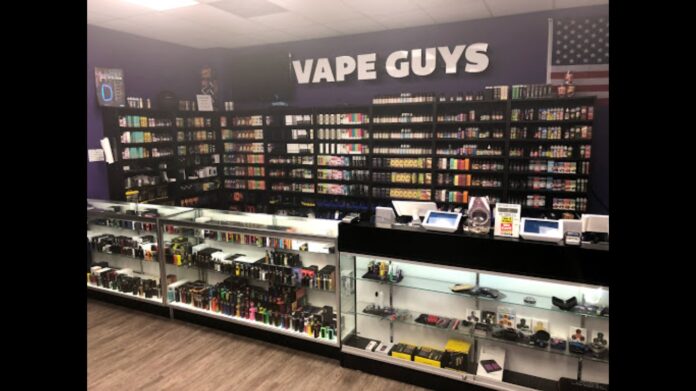Yan Gleyzer was watching via livestream when the state Senate voted Tuesday to defeat a bill that would prohibit the sale of flavored tobacco products. As the owner and CEO of Vape Guys, an e-cigarette distributor with three stores in Virginia, Gleyzer has been keeping his eye on tobacco legislation in the General Assembly.
Prohibiting the sale of flavored tobacco products including menthol was also proposed in the House of Delegates, but a committee voted last week to delay the two bills until 2021. Gleyzer called that a good thing, and said the delegates will now have more time to research and discuss proposed legislation.
“We can work with them to come up with the legislation that works for everybody,” Gleyzer said.
Gleyzer, a board member of the Virginia Smoke Free Association, said if a flavor ban did become law, more than 400 vape shops would be forced to shut down. He said flavored products are meant to help adult smokers quit, and he doesn’t believe prohibition is necessary to prevent them from falling into the hands of teenagers.
“We definitely don’t want to have kids have those products,” Gleyzer said. “It’s not meant for kids, it’s meant for adults. So whatever we can do to prevent kids having those products, we’re definitely gonna help.”
Despite Virginia earning an “F” from the American Lung Association regarding its tobacco-control programs for the fifth year in a row, the General Assembly won’t be voting on whether or not to ban flavored tobacco products until the next session.
Aleks Casper, the American Lung Association’s director of advocacy in Virginia, said her organization supported bills that would prohibit flavored tobacco and vaping products as well as require retailers to obtain a license for the sale of tobacco.
“In light of the vaping epidemic that is occurring and the youth usage that is occurring, the time is now to act,” Casper said. “I think the sponsors of these bills are very committed to getting this work done and pulling stakeholders together to talk about how we get this done in Virginia.”
Casper said she was disappointed that the proposals were delayed but is hopeful for 2021.
“I think what it does give us is the opportunity to kind of regroup,” she said. “Talk about it, you know, talk with our sponsors. Again, the sponsors are truly committed to getting the work done.”
The following five bills concerning tobacco and vapor were continued into next year this month by the finance committee of the House of Delegates:
-
House Bill 93: Prohibit the sale of flavored tobacco products, including menthol cigarettes;
-
HB 1119: Prohibit the sale of flavored tobacco products with lower maximum penalties than HB 93;
-
HB 1120: Increase the tax on tobacco products, except cigarettes, to 39% of the wholesale price of other tobacco products;
-
HB 1185: Limit the sale of flavored and high-nicotine vapor products to licensed retailers who require identification from customers;
-
HB 1283: Require retailers to obtain a permit from the state in order to sell any tobacco products; prohibits the sale of tobacco products within 1,000 feet of a “youth-oriented facility.”
Del. Kaye Kory, D-Falls Church, is the sponsor behind HB 93, which would create a civil penalty of $1,000 for the initial offense of selling flavored tobacco products and $5,000 on subsequent offenses.
Flavored tobacco products are defined in the bill as cigarettes, vapors or alternative nicotine devices with a taste or aroma of something other than tobacco. Menthol, mint, vanilla and fruit are among examples listed in the bill.
“As a long-time advocate for protecting the health of Virginia’s children, I proposed HB 93 to bring attention to the vaping crisis affecting so many of our young people,” Kory said.
Kory said she knew HB 93 was “overly broad” when she filed it, but she also knew that such a sweeping proposal would get stakeholders working together toward solving underage vaping. She also said she was pleased to work with vape-shop owners and the tobacco industry representatives on amending the bill so that it could be brought forward in this session, but time was a constraint.
“There are many more factors to be considered than time allowed,” Kory said. “I believe that continuing HB 93 under Rule 22 was an appropriate decision because this issue is extremely complex, and the solution will be difficult to legislate.”
Rule 22 allows any bill or resolution introduced in an even numbered year and not reported out of committee to be continued for hearings and committee action during the interim between regular sessions.
Kory said she intends to focus on putting the legislation in the “proper posture for re-introduction in 2021.”
Andrew Ringle / Capital News Service

